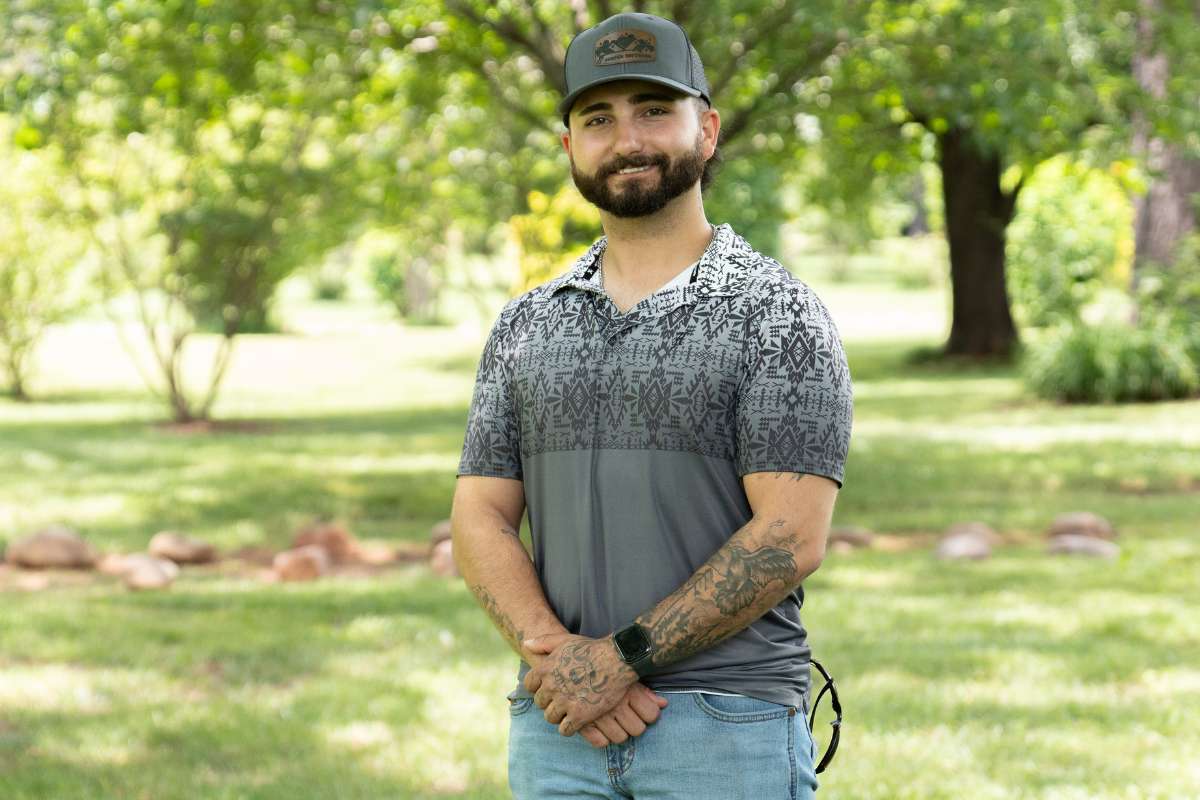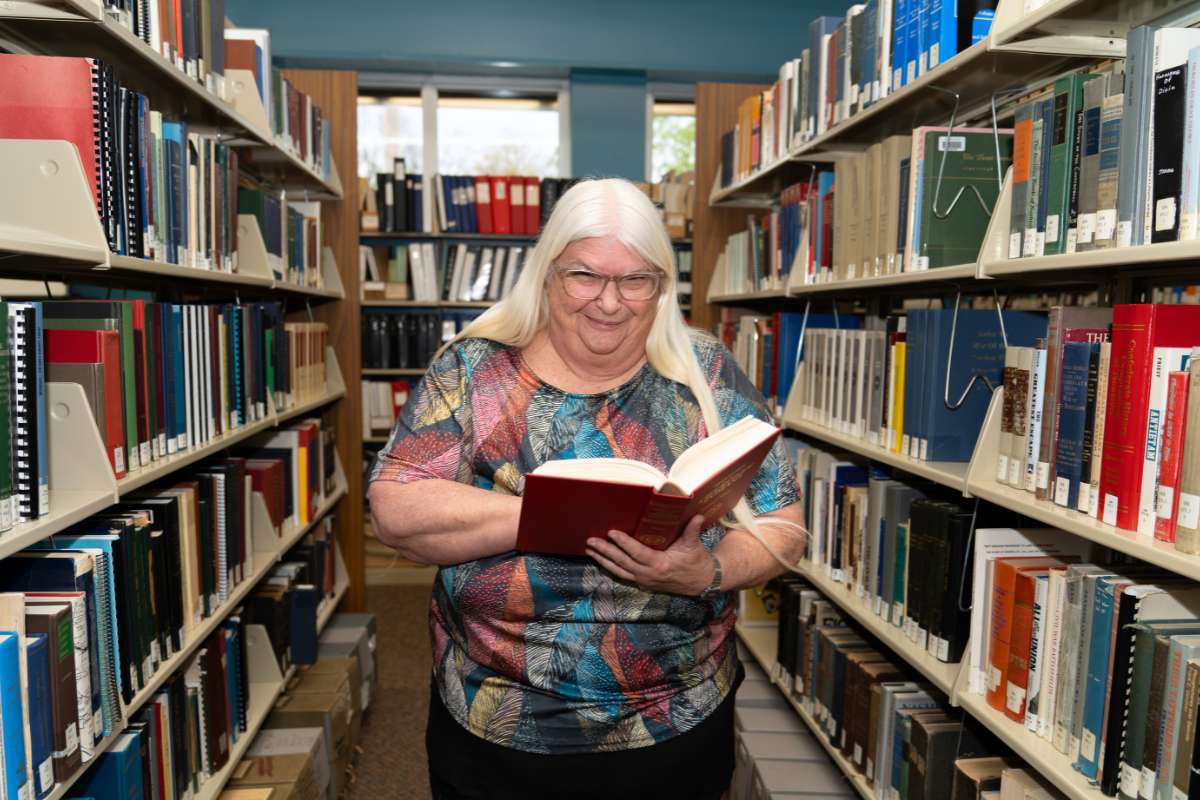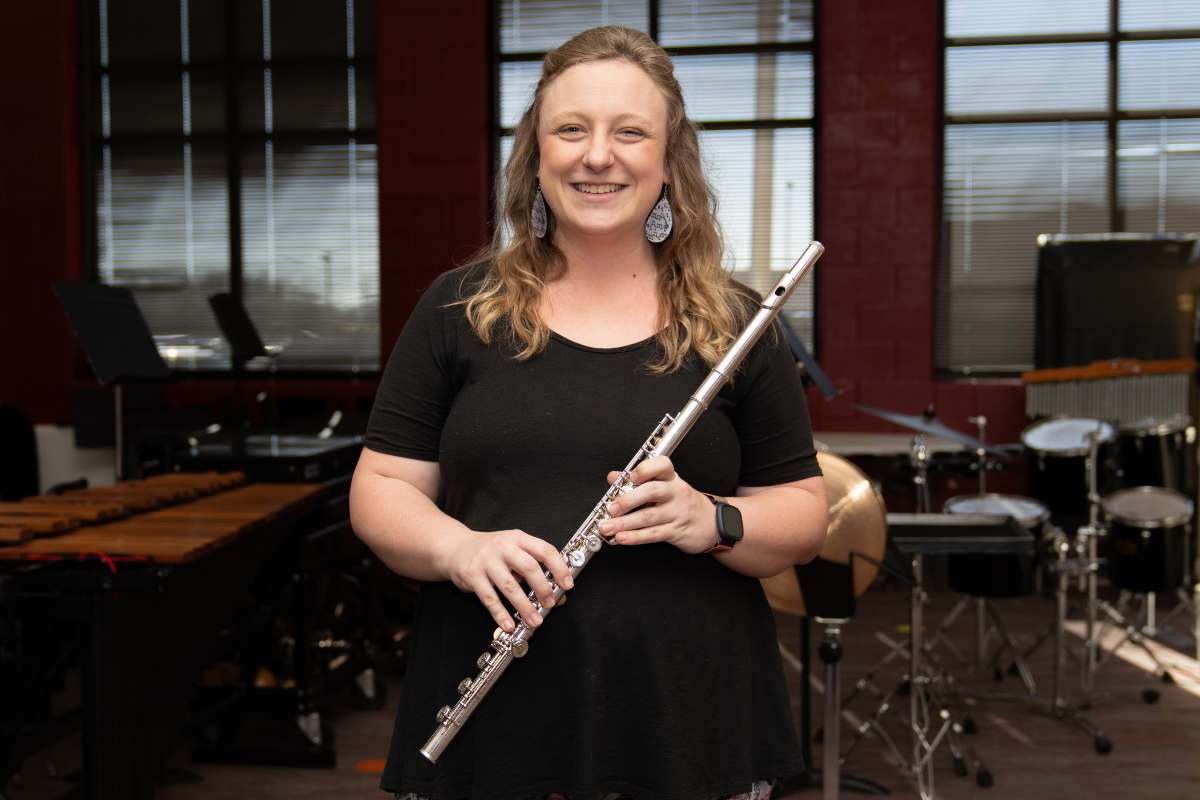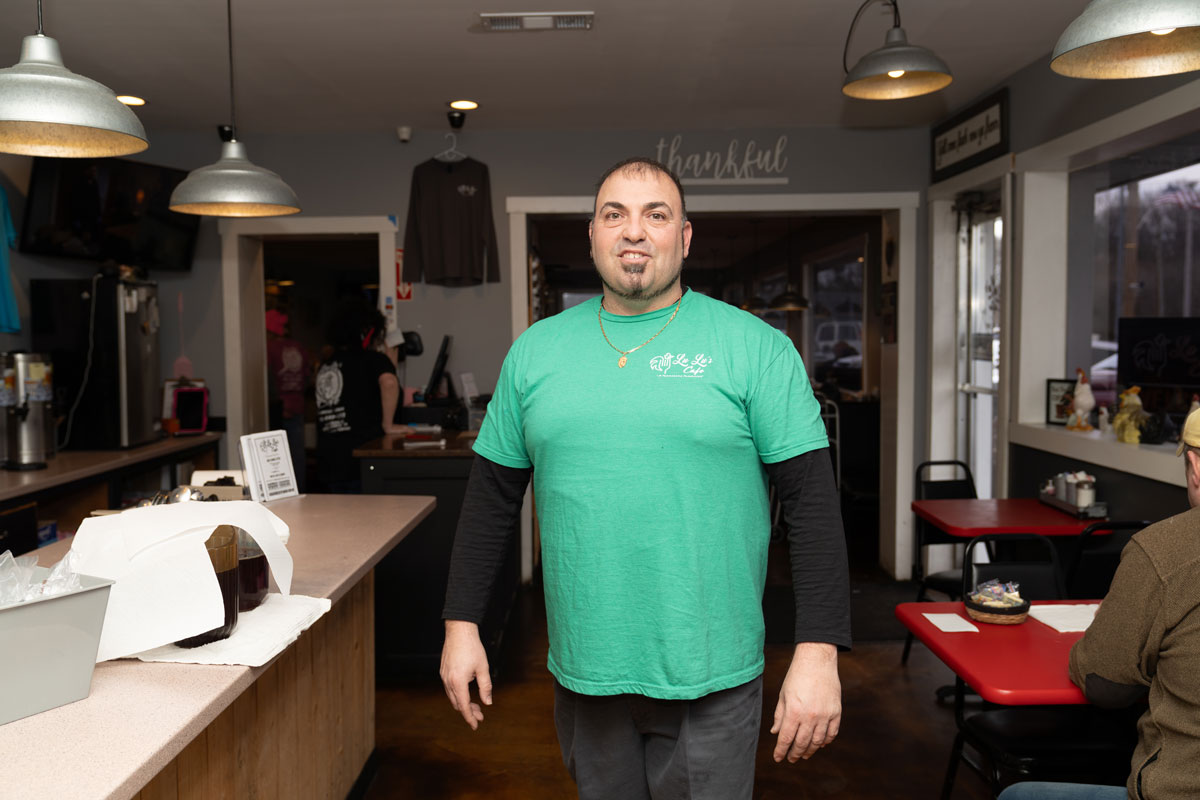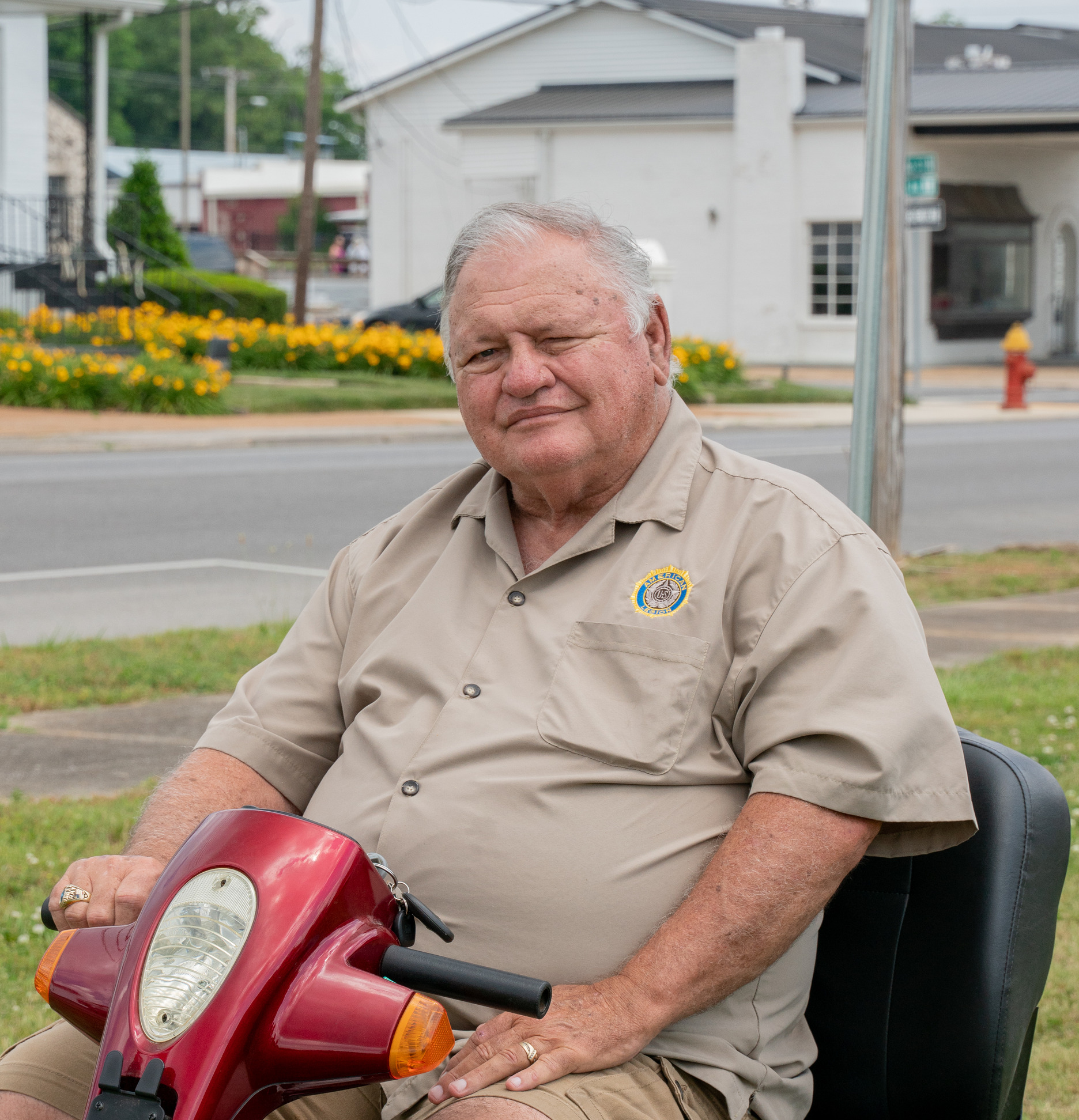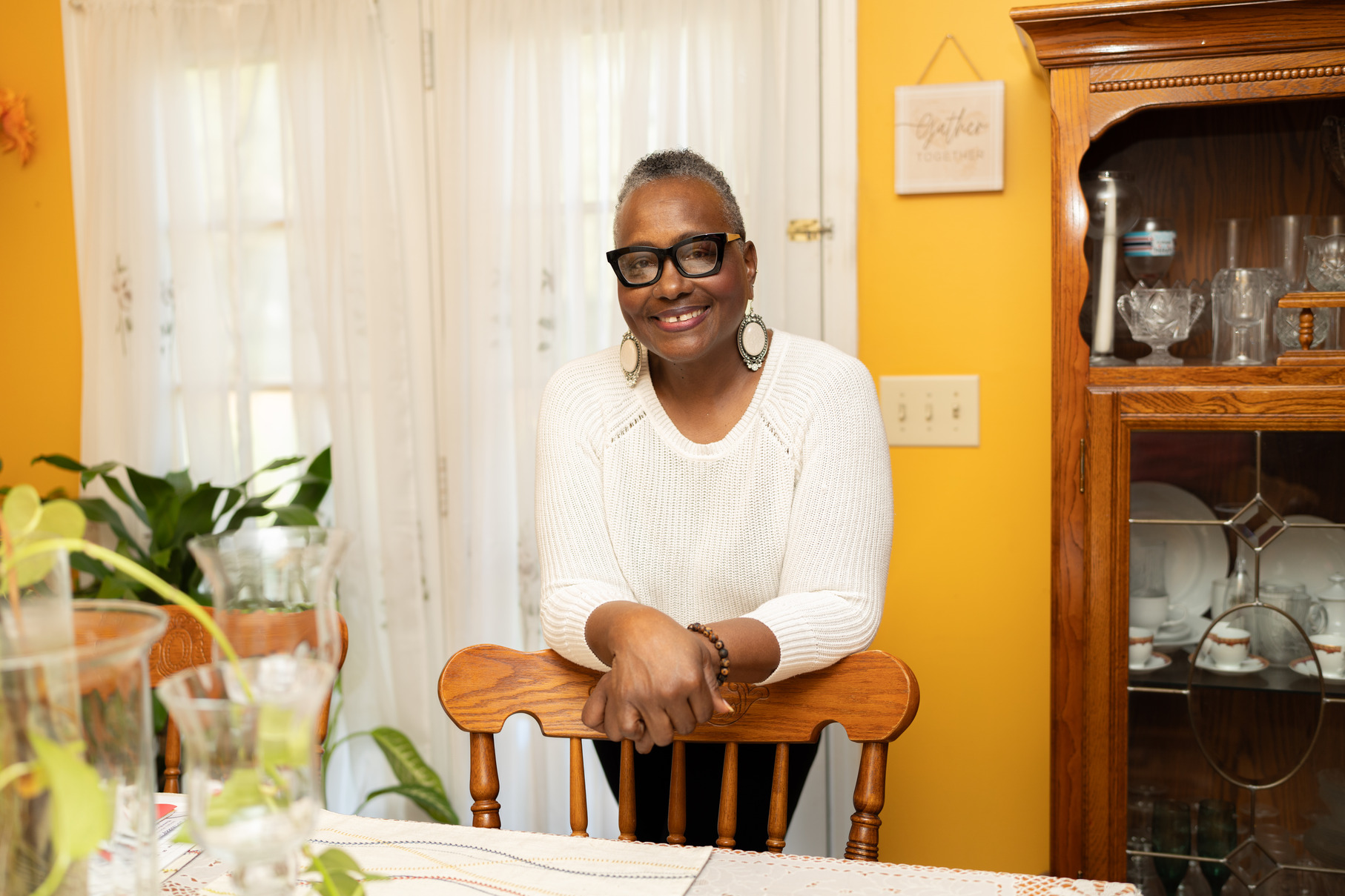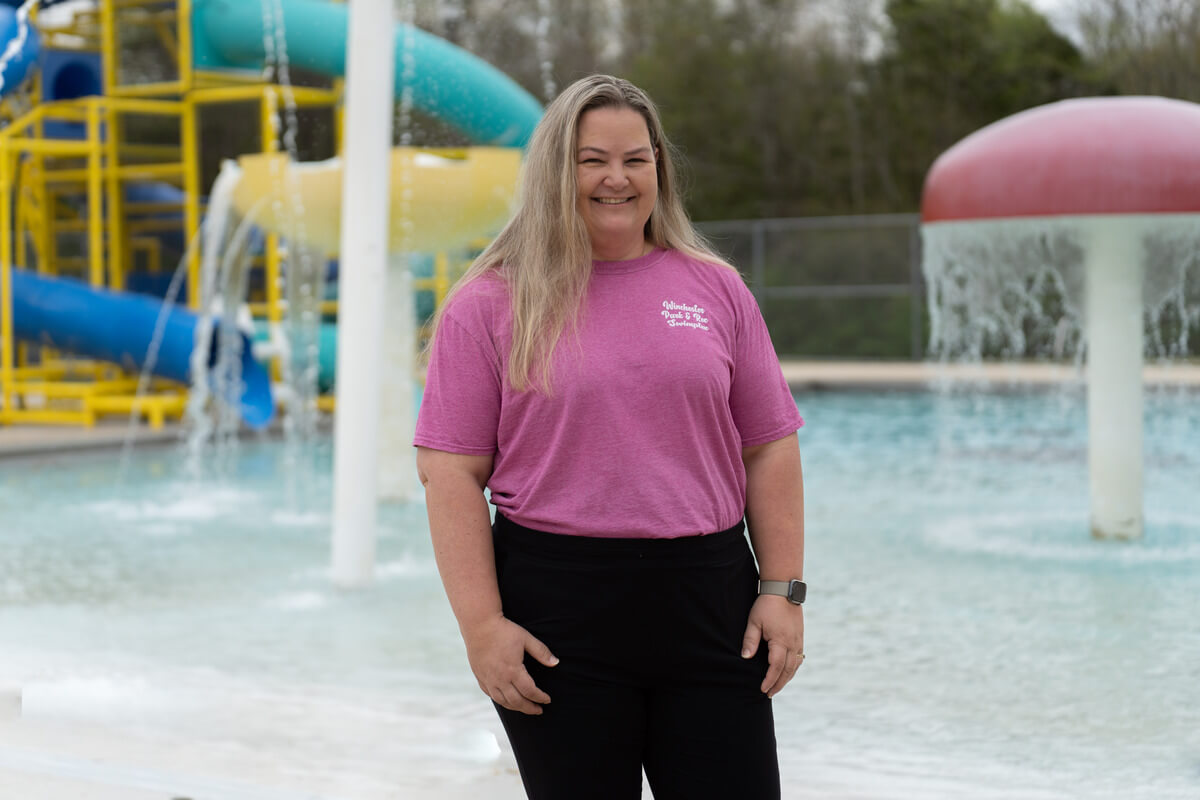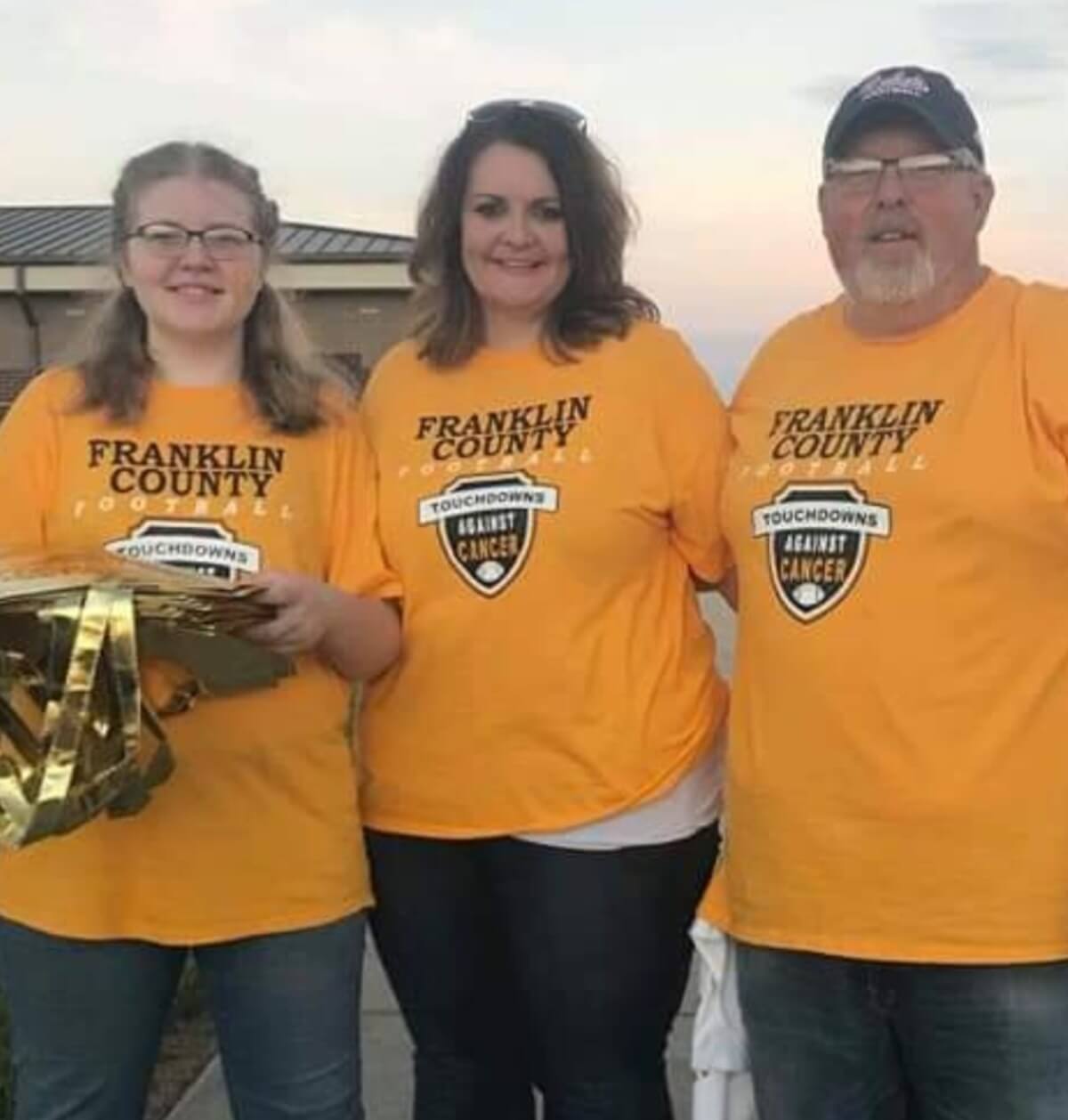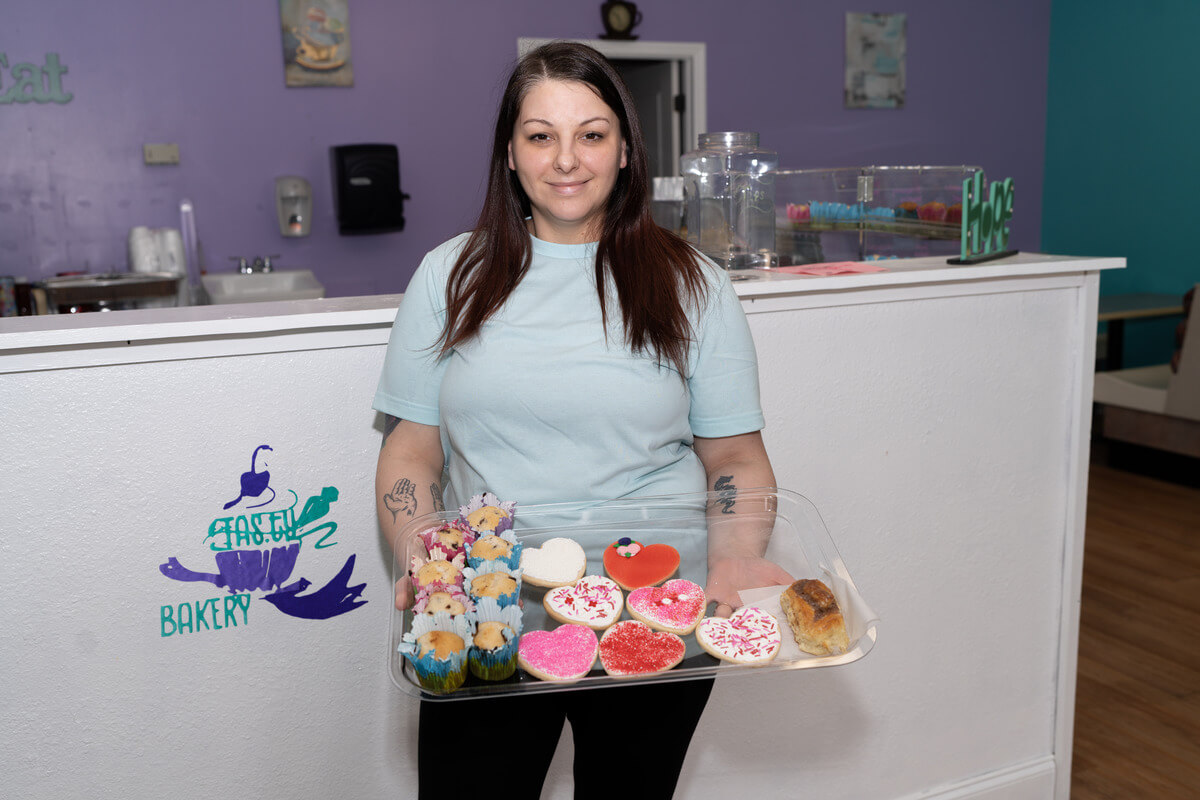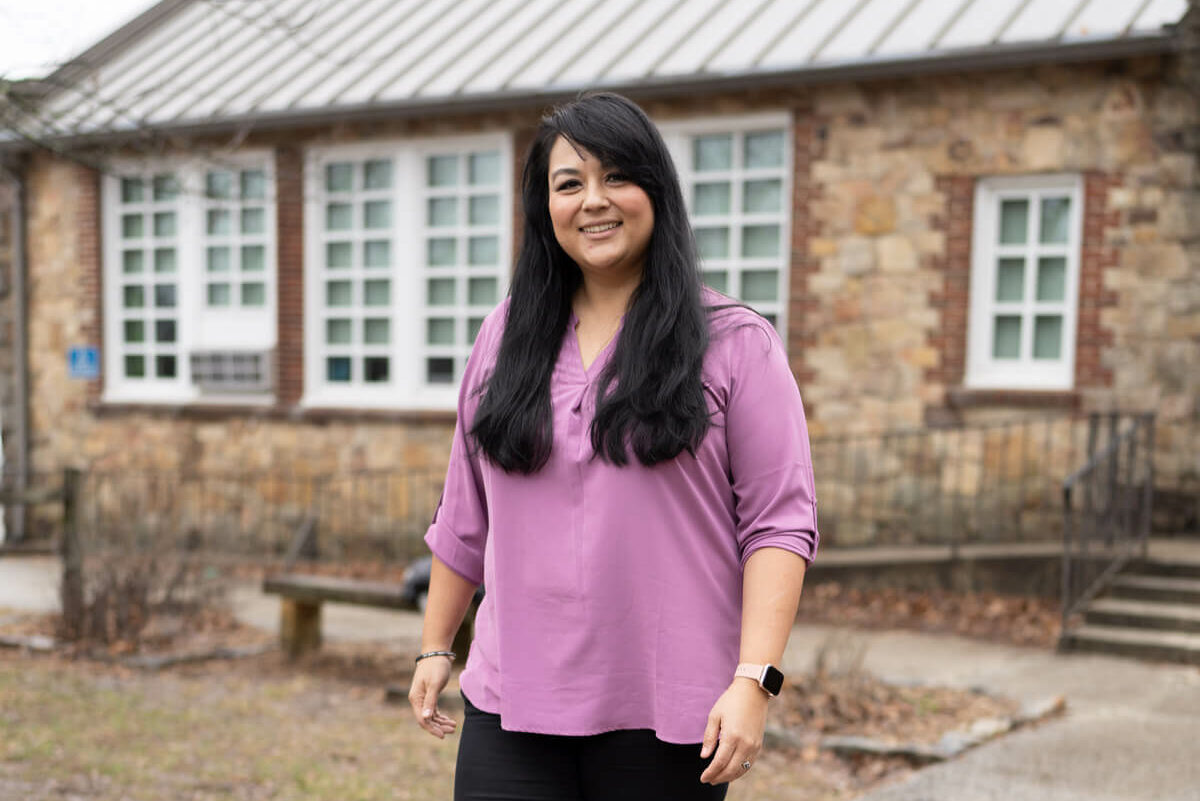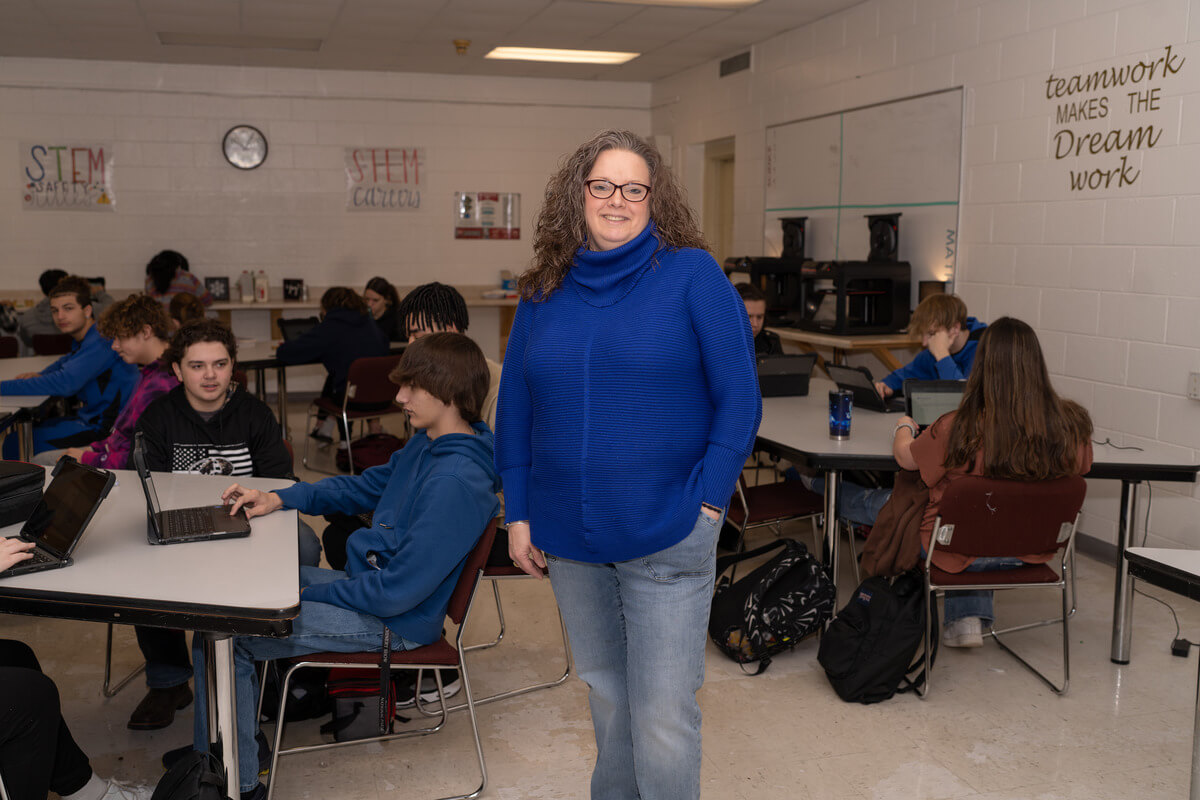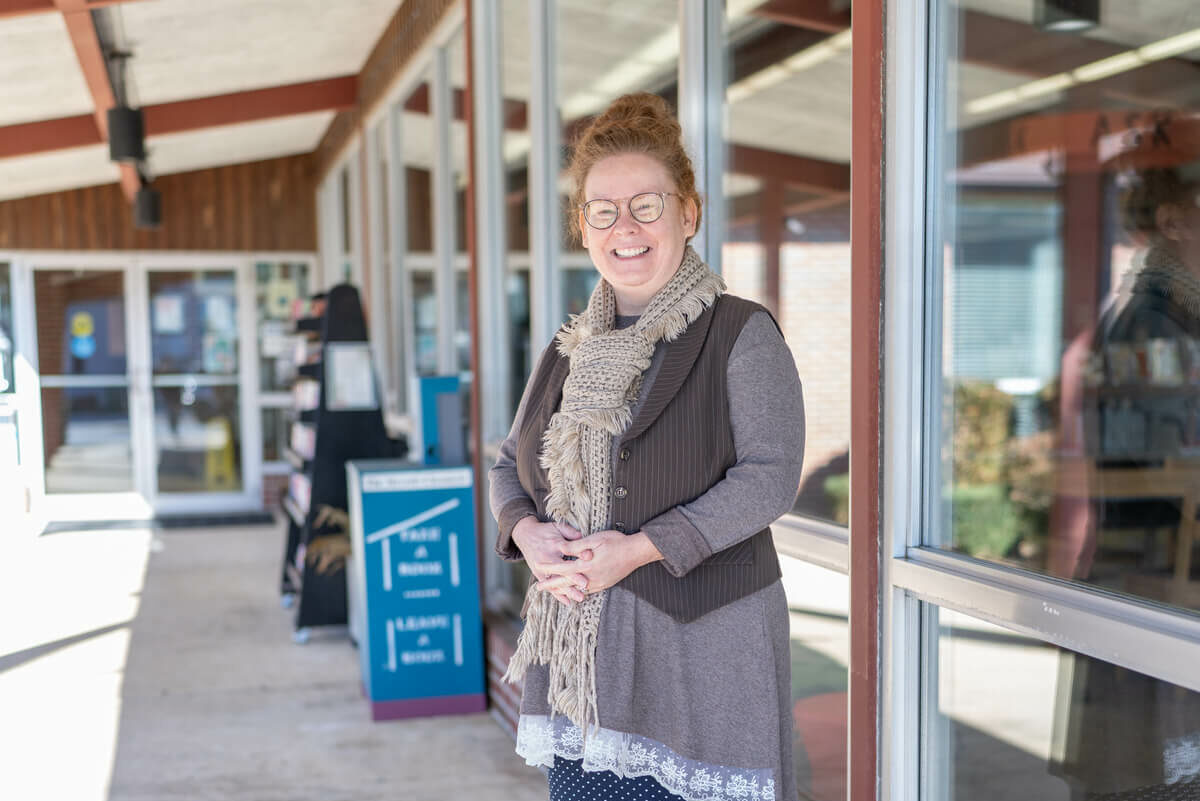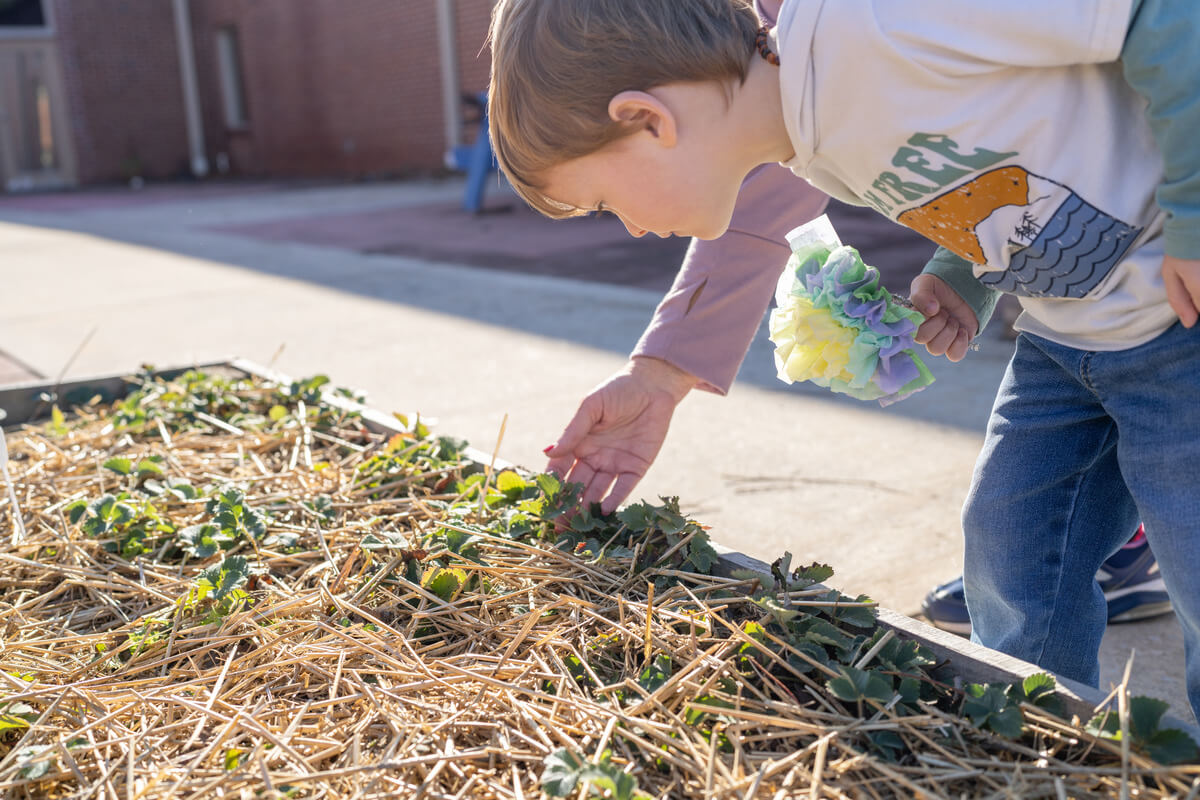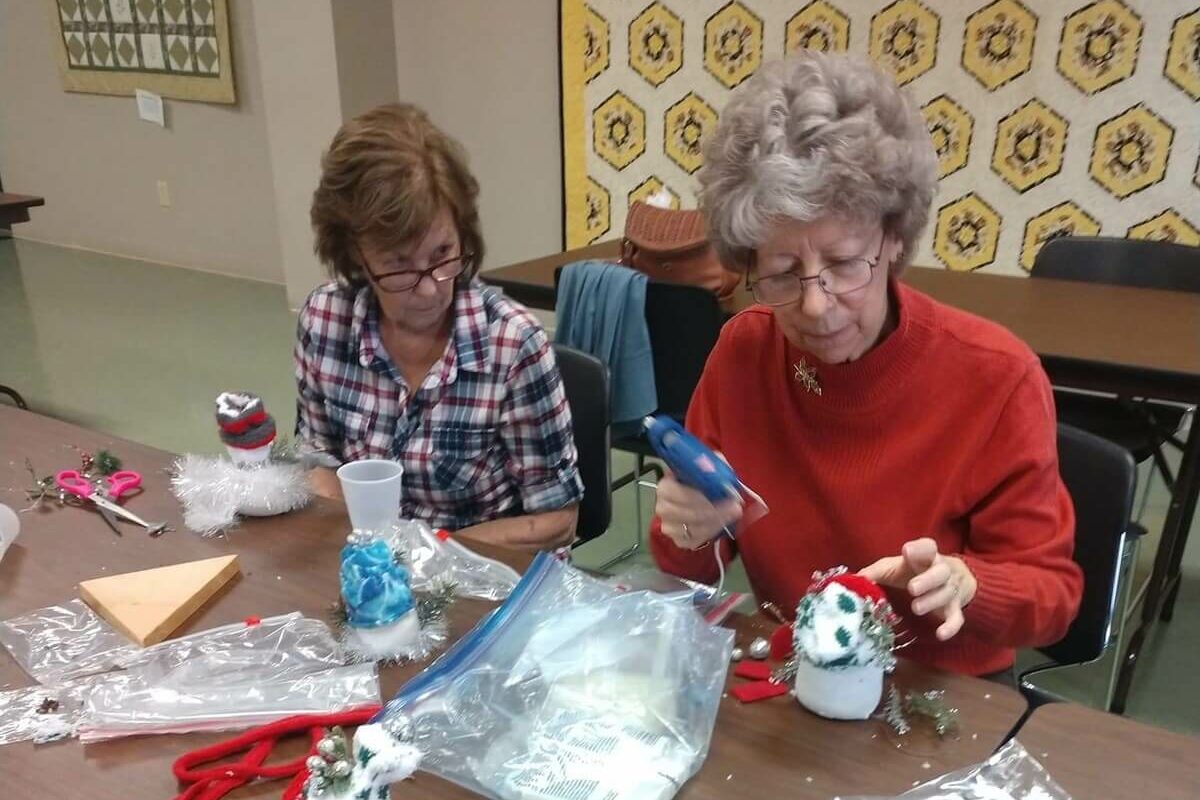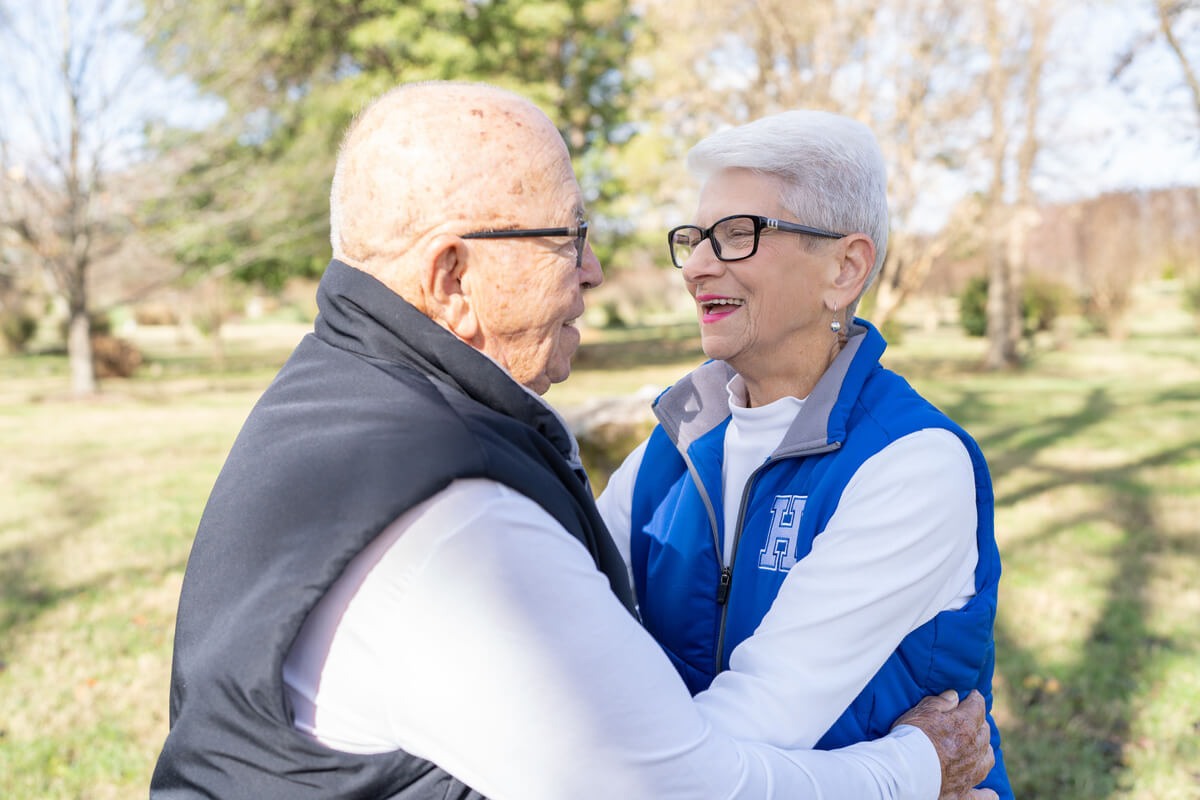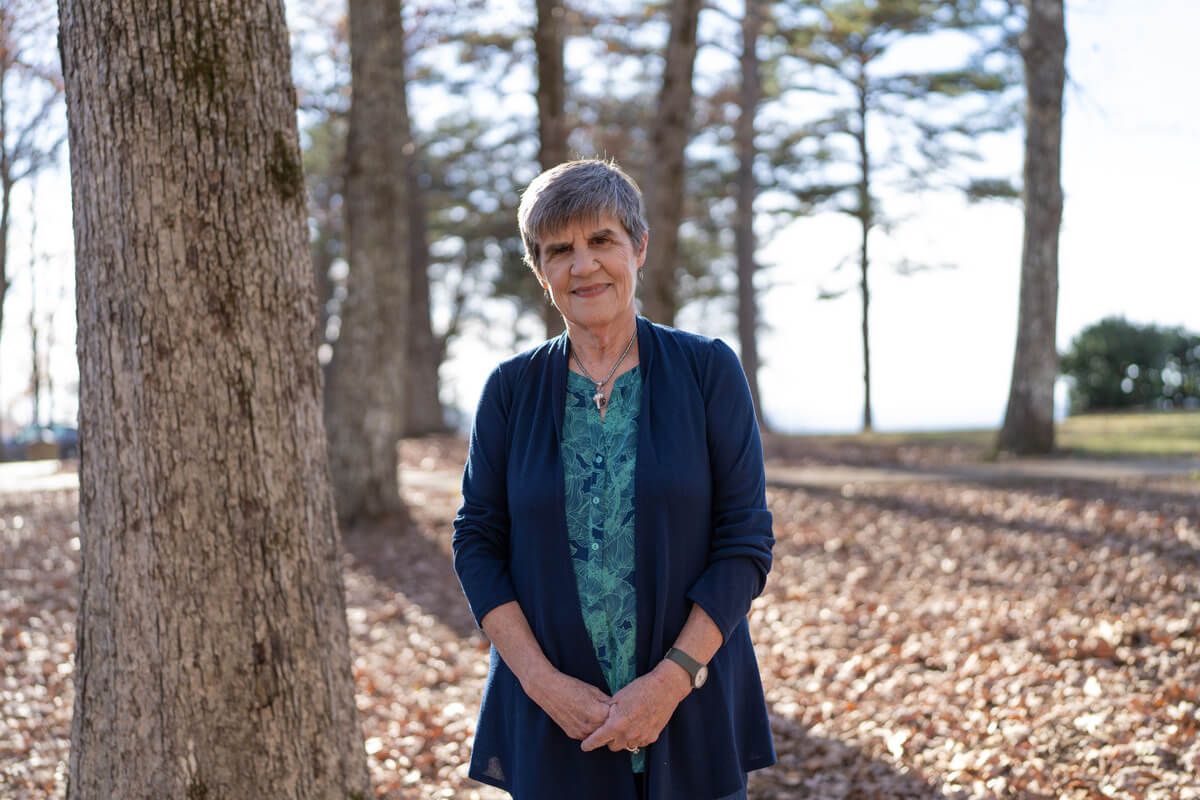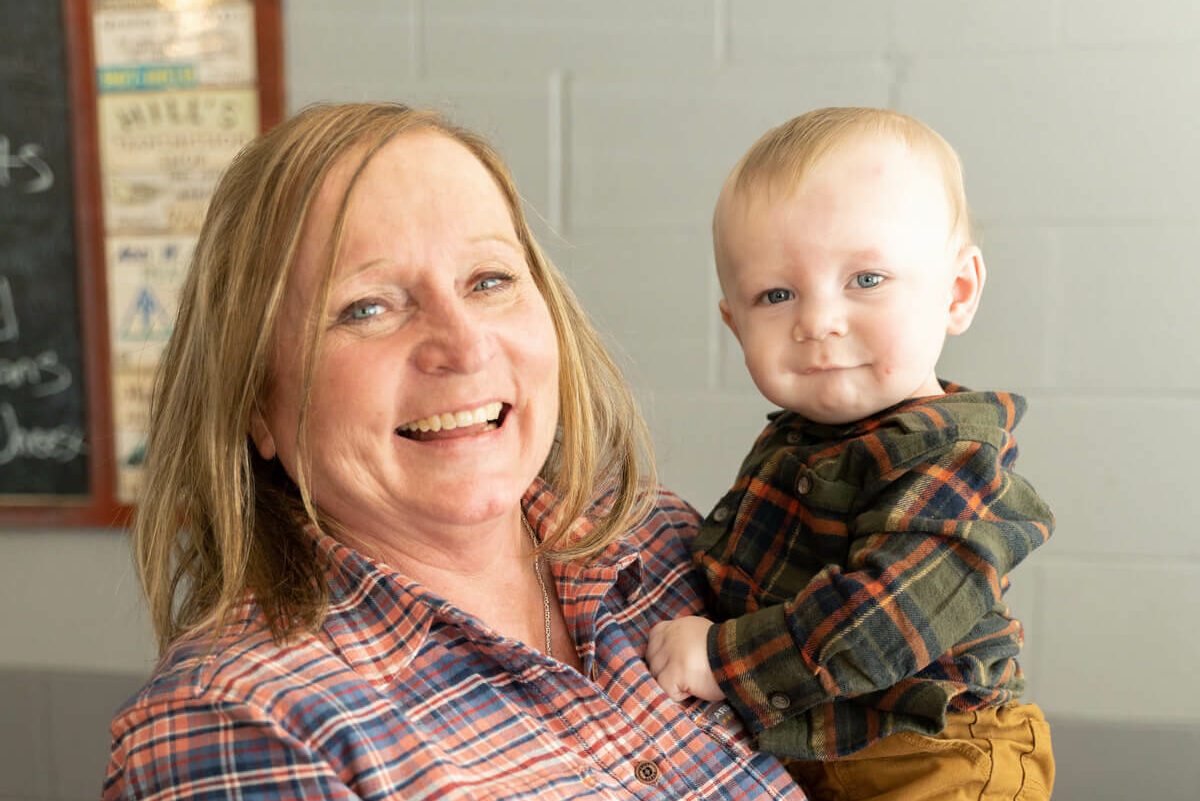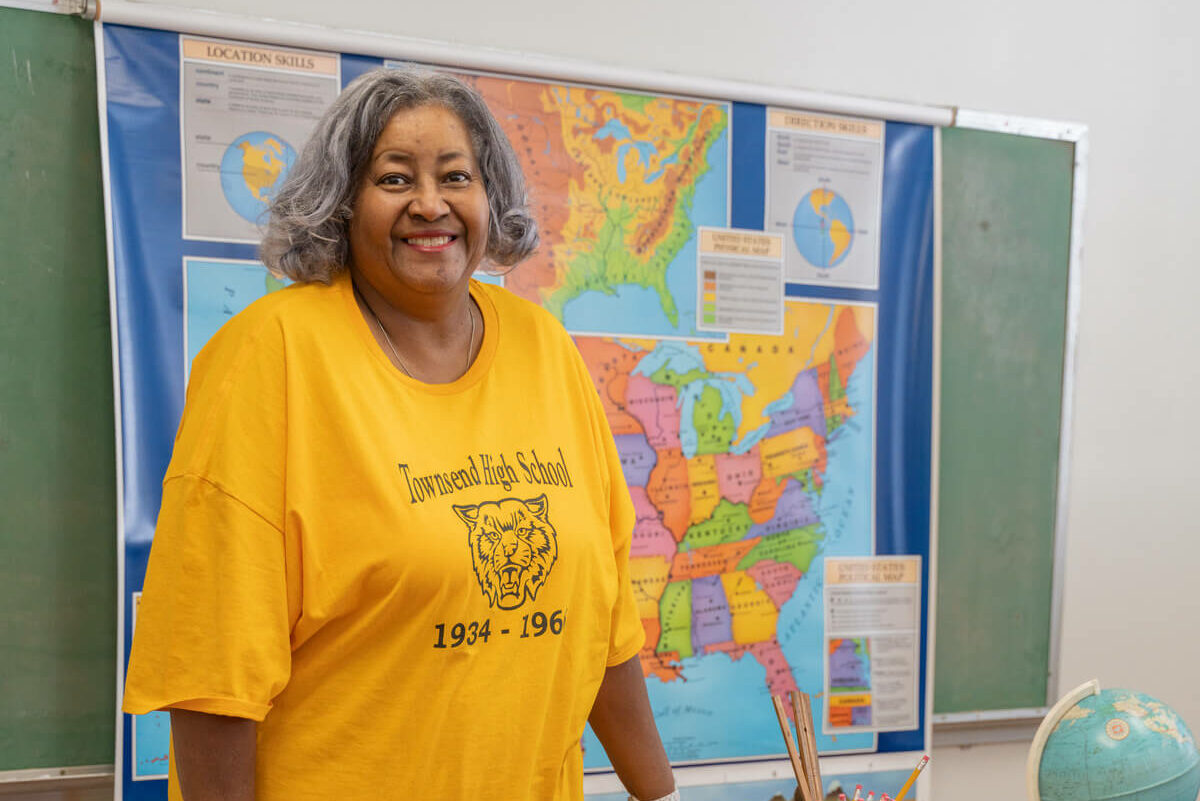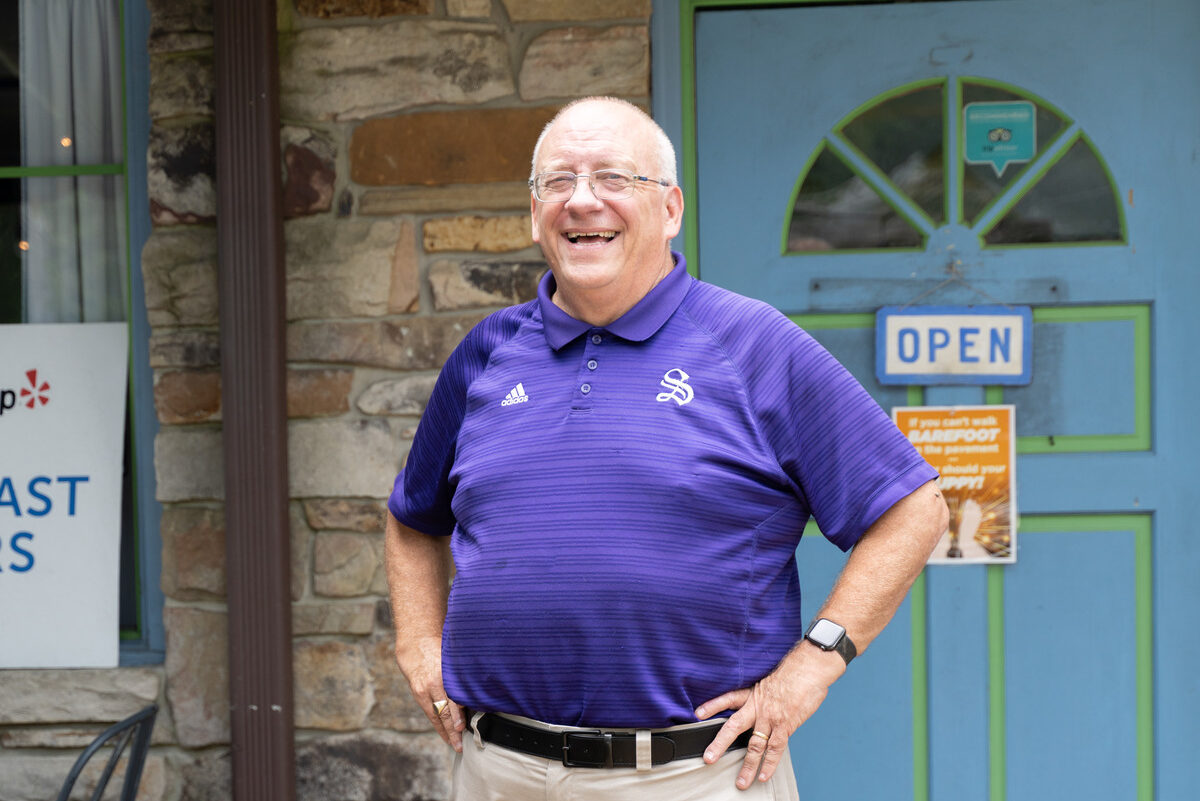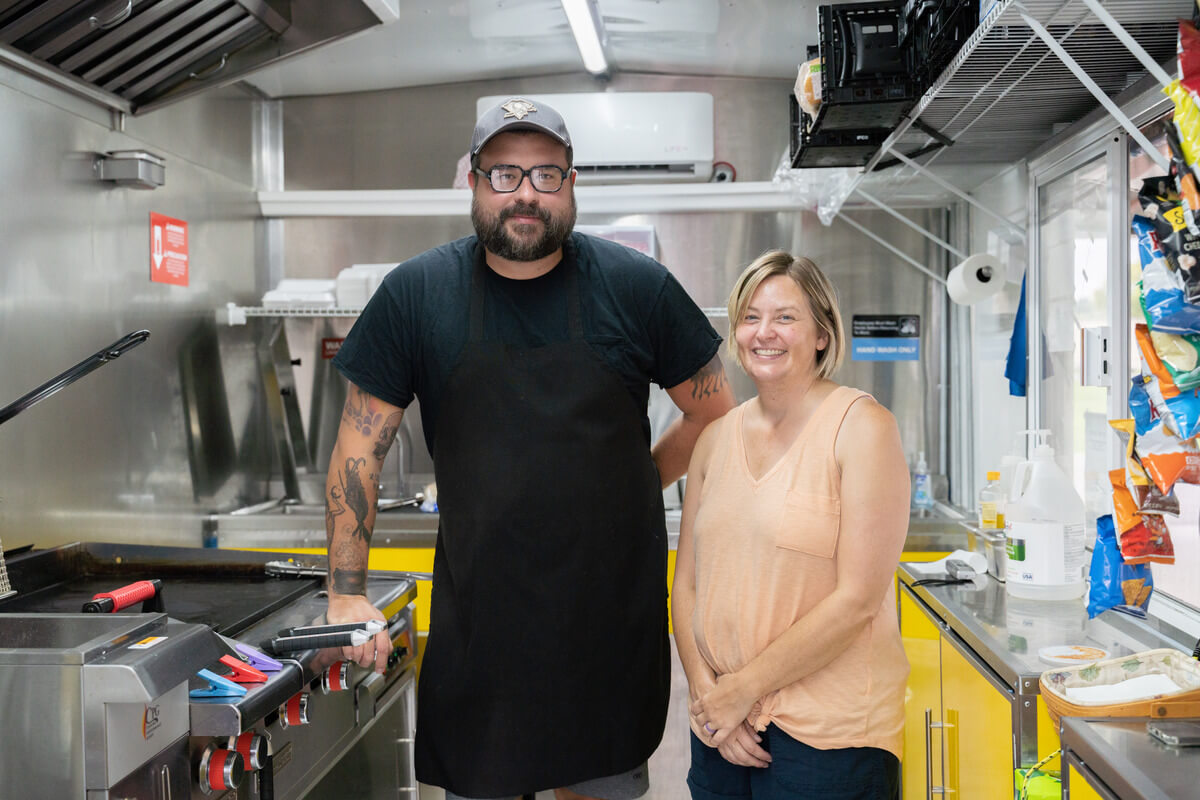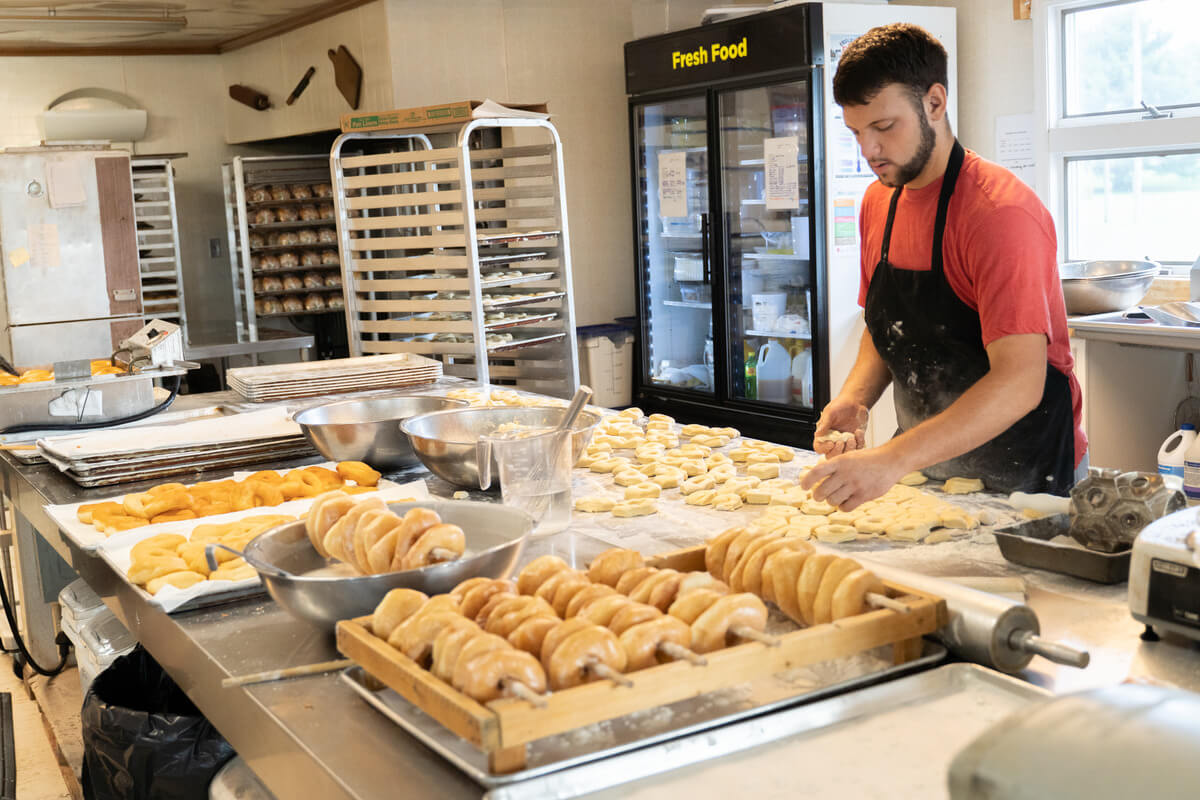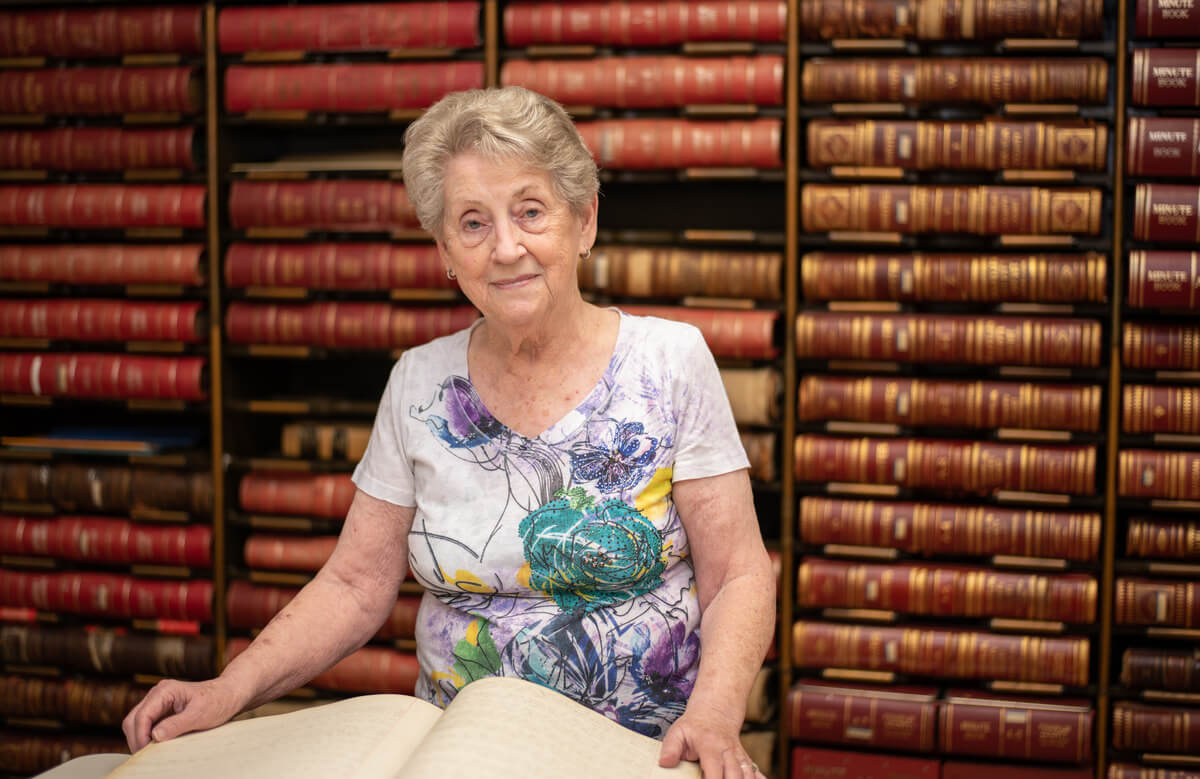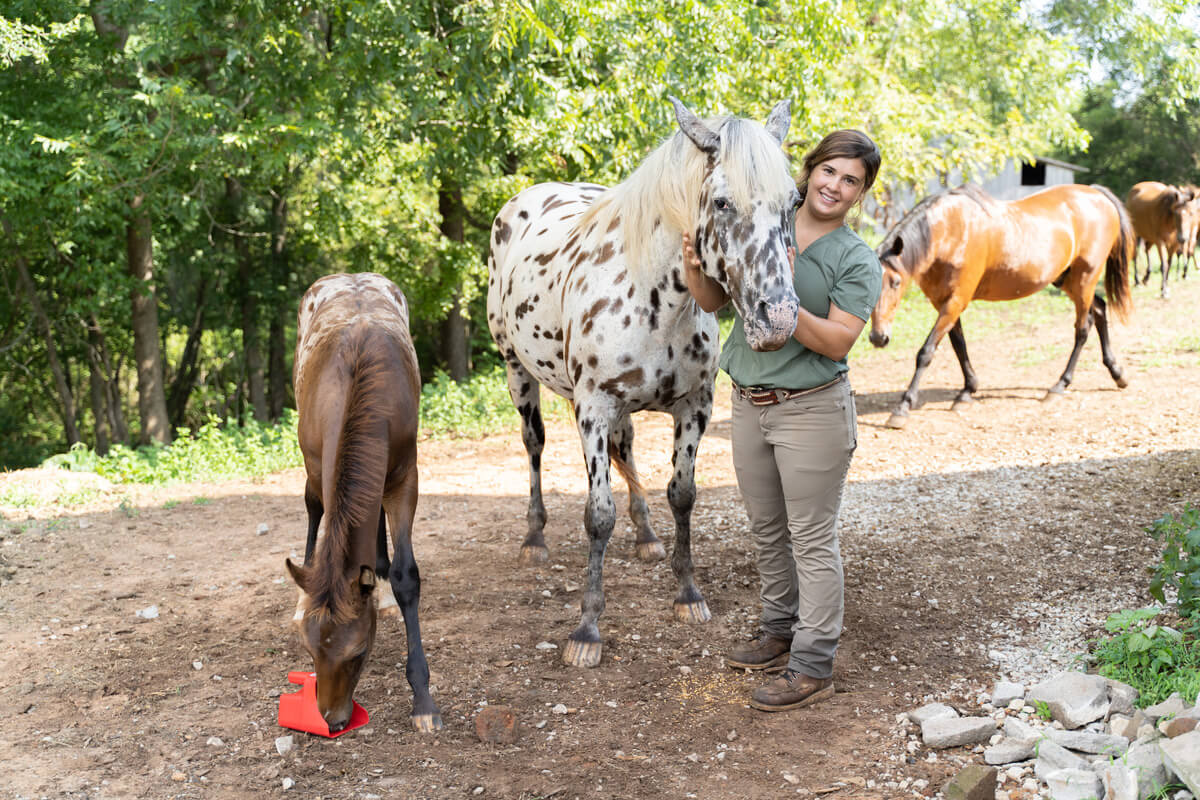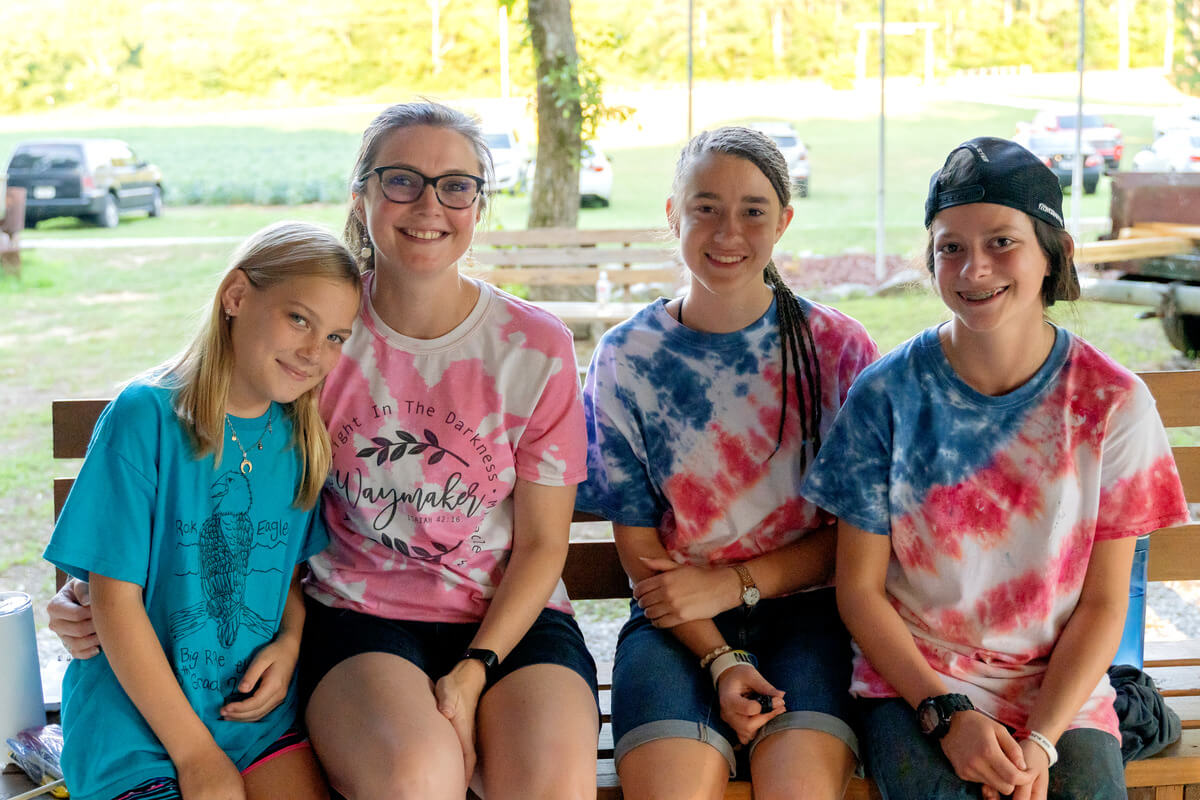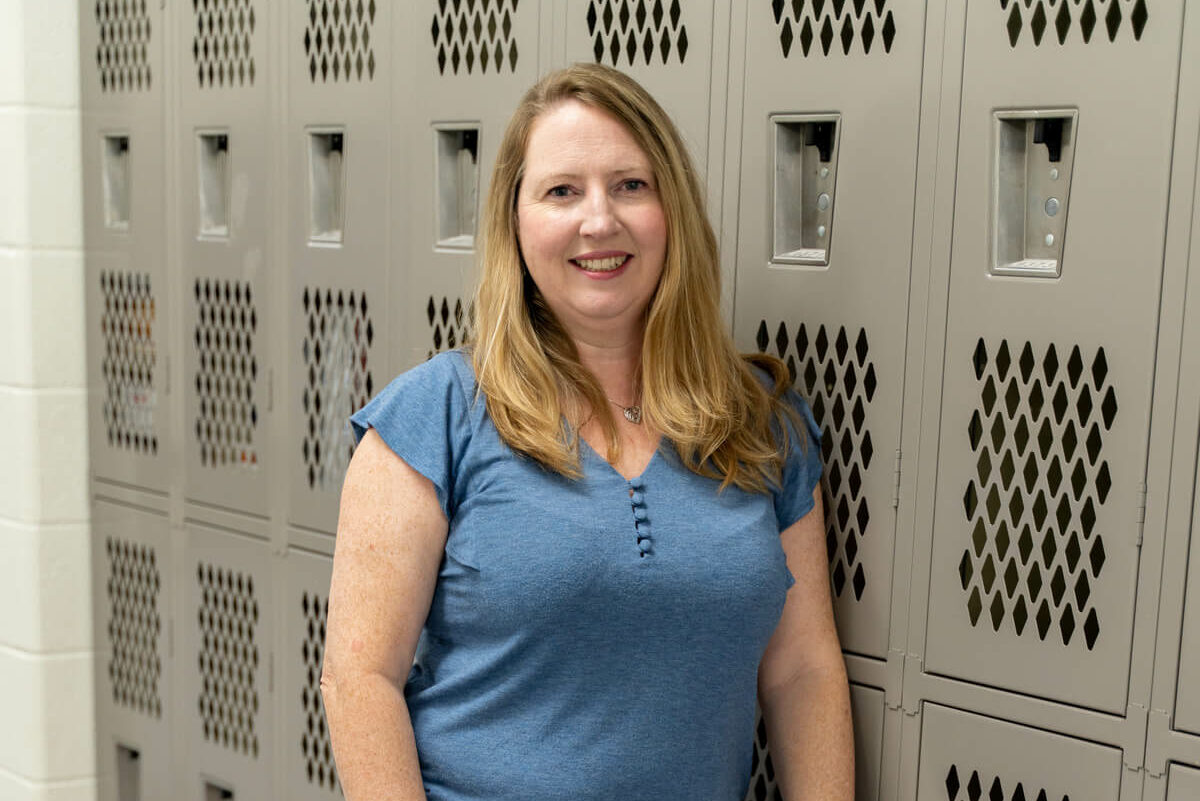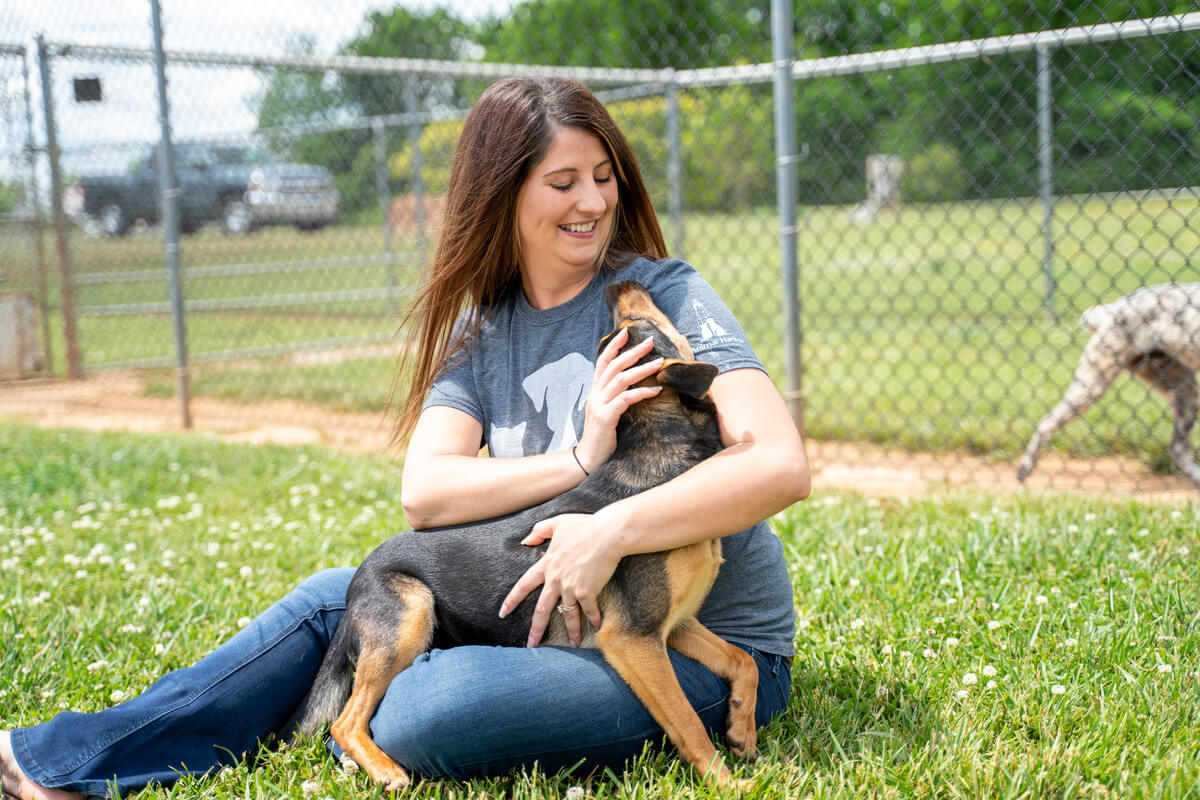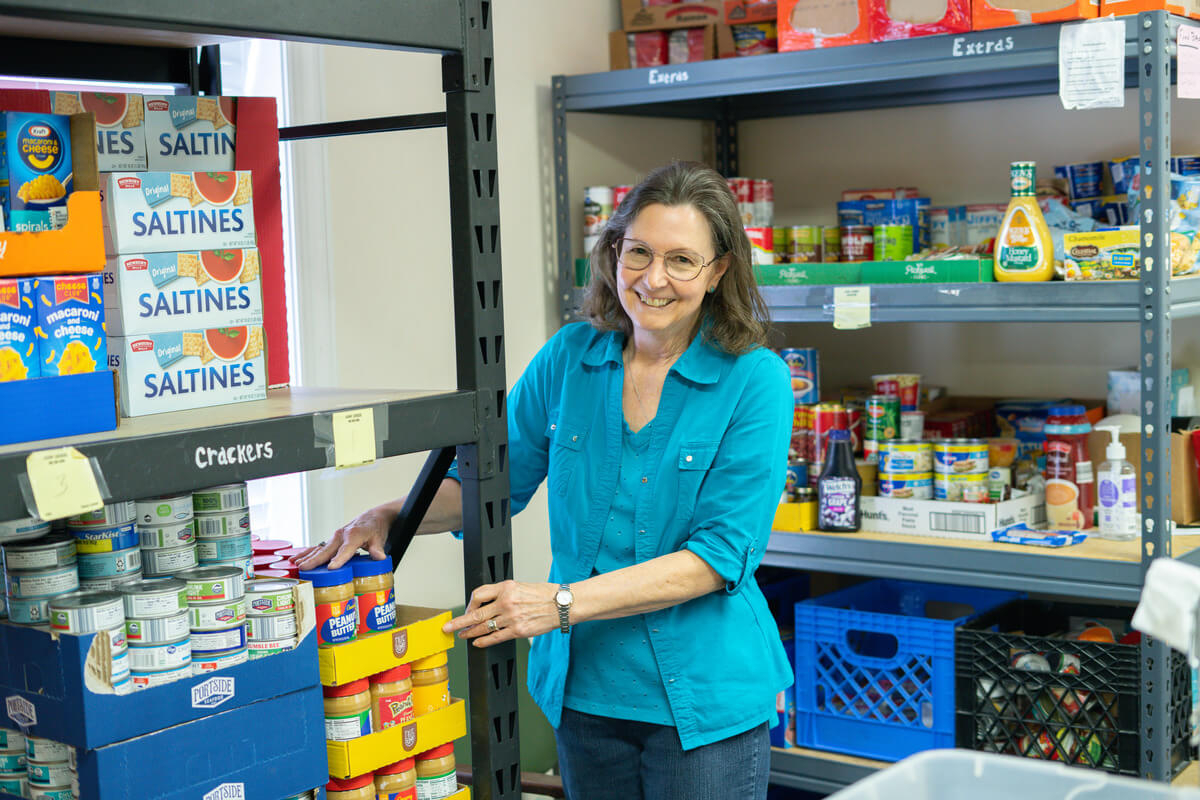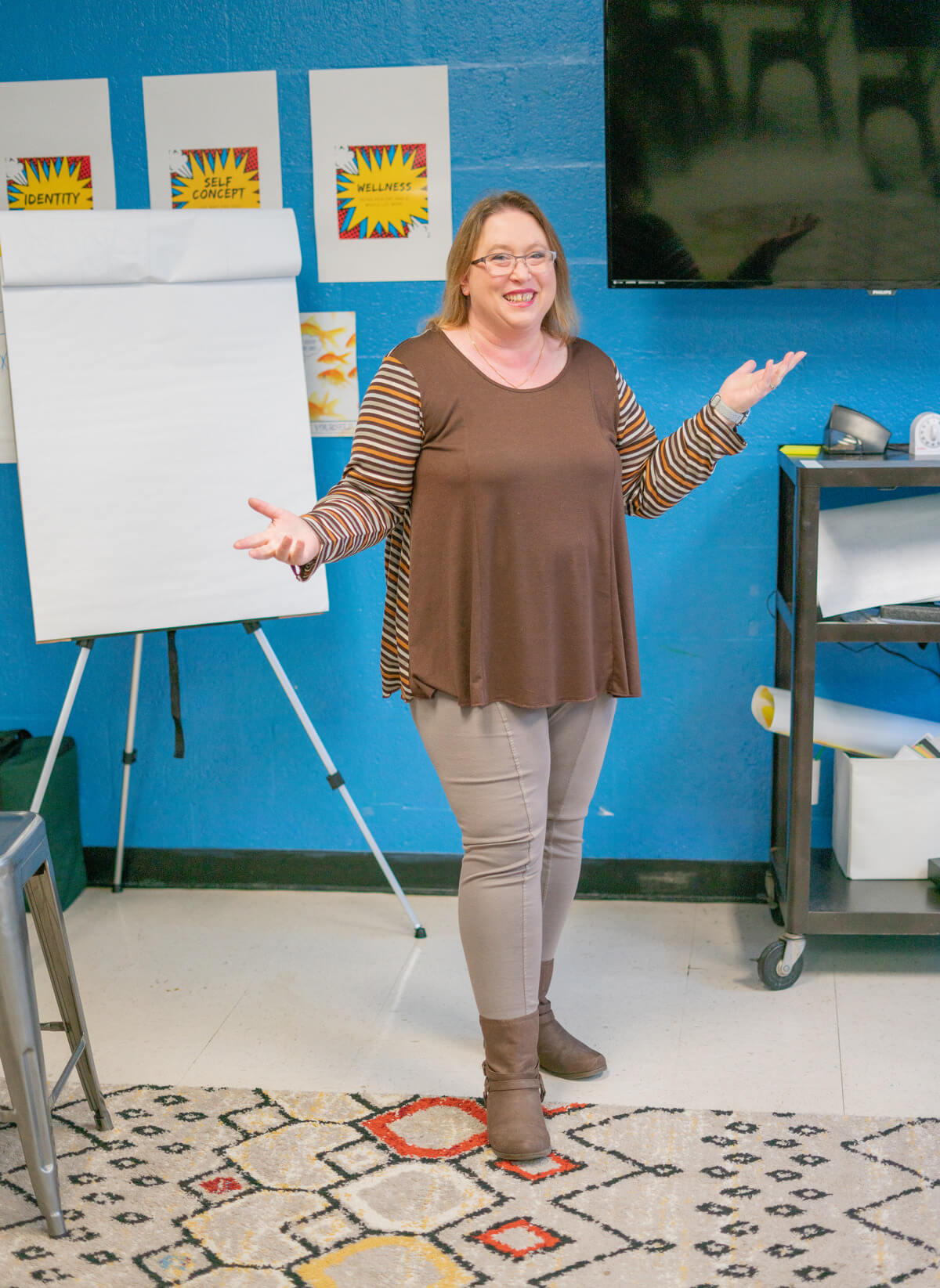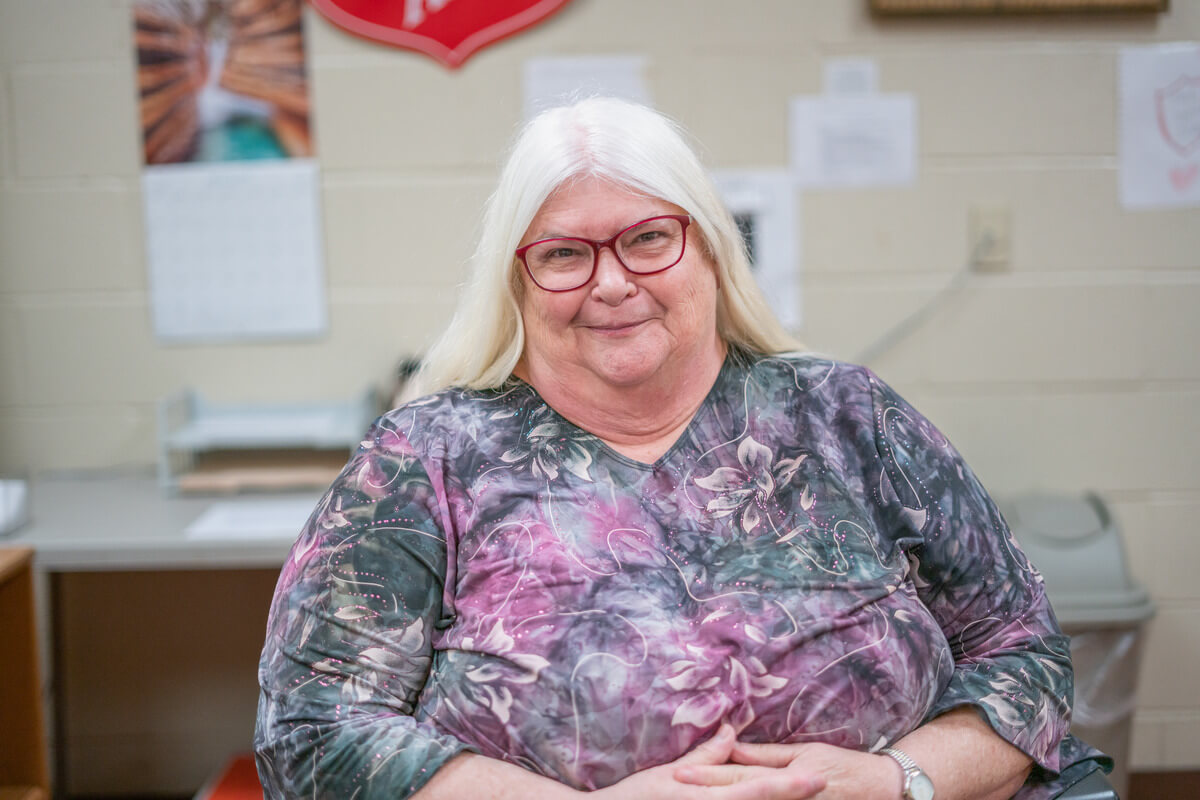THE WAITING room at Winchester Primary Care is packed with patients preparing for a visit with Dr. Kou-Wei Chiu. Patients fidget in their chairs as the nurses call them back as quickly as they can, but impatience melts away completely as Peaches, the clinic’s 98-pound yellow Labrador retriever, bounds sweetly through the door. She makes her rounds, getting pets from each person and treats from some regulars. Peaches’ calm demeanor and smiling face relieve the tension and anxiety patients often feel when they visit a doctor’s office.
Peaches came to the clinic with her owner, Dr. Chiu, who has been at Winchester Primary Care since 2010. Chiu has had her since she was just a 3-month-old puppy. Initially brought in to assist with stress management for the staff, who work in a high-pressure environment, Peaches soon revealed some unexpected patient benefits: people became less nervous, their heart rates dropped, they cheered up, and they were more patient. Peaches added a level of comfort that helped patients with whatever they were feeling.

Chiu said Peaches is registered as a companion animal. This allows her to roam the office and exam rooms freely, but she can be put away if a patient is scared of dogs or has an allergy. Chiu says those are very rare occurrences. Most patients are thrilled to come back each time to see the friendly Lab, whose signature move is to flop down in front of patients and roll over for belly rubs. She can also tell which patients have brought food for her, and she visits them first. The 7-year-old dog has a very calm demeanor, and Chiu said yellow Labs are the calmest breeds of Labradors, and work well for patient interactions.
“I find that my dog is a stress reliever for me. And she really helps just to kind of break up the mood a little bit and helps start the conversation with people. When you go to any doctor, your blood pressure is always going to be 20, sometimes 50, points higher, only because you’re nervous,” Chiu said. “And so, when you have a dog, it really helps calm down those numbers.”
A few years ago, Chiu added a second dog: Pugsley the pug. Originally meant to be his wife Lizzie’s pet, Pugsley couldn’t go with her to work at Lizzie’s Nursery, so he became another familiar furry face at the clinic. Dr. Chiu emphasized that if it were not for Peaches teaching Pugsley to calm down a bit, he would not be able to come to the clinic. Chiu said dogs function better in pairs, so it seems to be working out well.

“Pugsley, the pug, would have been too high-energy to come here. But creatures work better together, and Peaches is teaching Pugsley very well. Just being around her is helping him understand how to behave with the patients,” Chiu said.
Pugsley has certainly found his stride with calming patients down, but his tactic is a bit different from that of his serene friend, Peaches. The little 23-pound, energetic pug uses comedy to distract and entertain patients at the clinic. He will jump up in the chair beside a patient and tip his head to the side, adding comic relief with his charmingly mismatched gaze.
“He will just stare at the patient with his big, brown, lopsided eyes, and it always makes people laugh,” Chiu said.
As the saying goes, laughter is the best medicine, and Pugsley is just the right prescription. He and Peaches make quite the odd couple, being as different as night and day, but they obviously have great affection for each other. Chiu said one of the funniest things is watching Pugsley attempt to assert dominance over Peaches, who is five times larger than he is. Peaches is unbothered by this and just lets the little dog think he is in charge. She will even let Pugsley lie on top of her while sleeping, a humorous scene considering the pug’s tiny stature.

“My patients always ask me, ‘Why does Pugsley do that?’” Chiu laughed. “It’s Little Man Syndrome, I guess!”
Peaches has been doing this job longer than Pugsley, but she is quickly bringing him up to speed. Pugsley learned by watching Peaches that the patients sometimes bring treats, so now he knows to check those patients first, like his big sister does. Both dogs have a large yard behind the clinic to run around and use when needed, and they go home with Chiu each night. He has four children at home: Sophia, Eva, Matthew, and Sarah. They love their dogs, too, though Chiu is the primary caregiver.
Chiu said the dogs are especially calming for his pediatric patients, and he believes more clinics should incorporate companion pets. They have made a positive difference for the staff, the patients, and him personally, making the work environment more enjoyable. Chiu said patients keep coming back because of Peaches and Pugsley, and because he offers affordable, accessible health care for a tenth of the cost of an emergency room. Chiu is grateful for the opportunity to serve this community through health care and through the joy his dogs provide. GN













